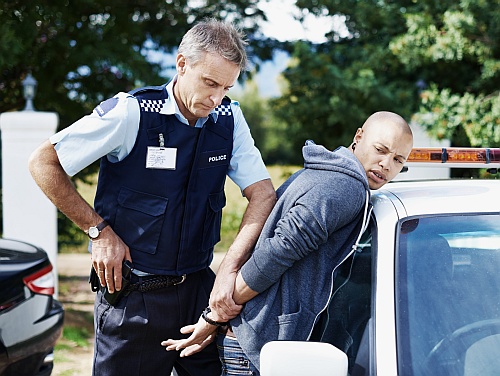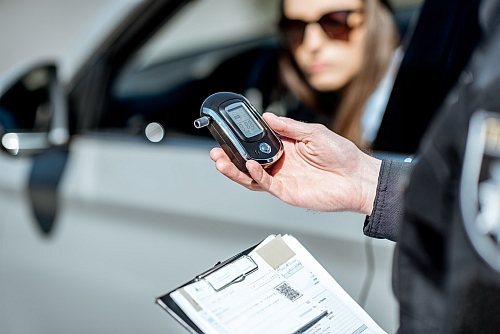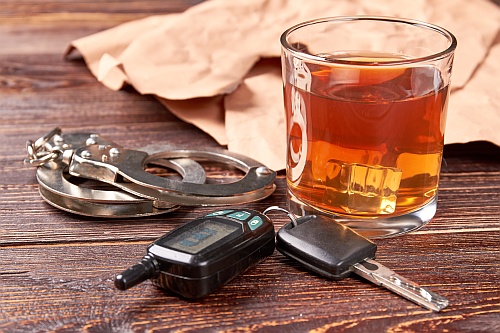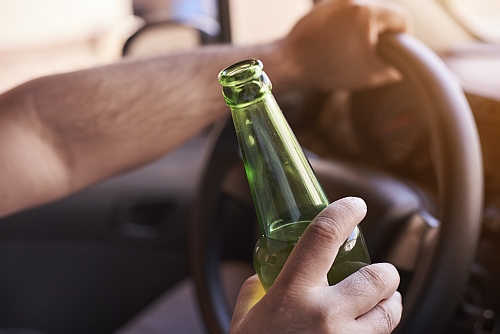- September 30, 2022
DUI Checkpoints serve a necessary purpose. As the best DUI defense lawyer in Charleston, we know motor vehicle accidents happen daily due to impaired driving. According to the CDC, 29 people in the United States die daily in motor vehicle crashes involving an alcohol-impaired driver. This is one death every 50 minutes.
In a bid to reduce the occurrence of drunk driving accidents, the government and law enforcement agencies position DUI checkpoints at strategic locations all over the country. Under the 4th amendment of the United States Constitution, any search or seizure has to be reasonable. That is, if the officer lacks reasonable suspicion that the driver of a motor vehicle is involved in criminal activity, they are not permitted to stop, or pull over, that vehicle.
However, law enforcement officers are legally backed to conduct short sobriety tests on motorists without reasonable suspicion under the DUI checkpoint program. This is done to immediately get drunk drivers off the roads for the safety of society. But, before, during, and after this short stop, you still have rights that must be protected, which will be discussed in this article.
What Are DUI Checkpoints?
DUI or sobriety checkpoints are predetermined locations across the United States where law enforcement officials are legally permitted to observe or test drivers for any signs of intoxication or impairment. They either stop every vehicle or stop vehicles at some regular interval, such as every fourth or tenth vehicle.
Over the years, the legality of DUI checkpoints has been challenged. However, judicial bodies and lawmakers believe that the community’s safety outweighs the short inconvenience of motorists. A DUI checkpoint stop is quick, but it allows officers to check tags and licenses while also catching a quick whiff of the driver’s breath and administering other sobriety tests.
DUI checkpoints are authorized in 38 States, including South Carolina and the District of Columbia, but only a few states conduct them often. According to CDC, only 13 states conduct checkpoints weekly. The other 12 states that do not permit sobriety checkpoints at all include Alaska, Idaho, Iowa, Michigan, Minnesota, Oregon, Rhode Island, Texas, Washington, West Virginia, Wisconsin, and Wyoming.
Remember that even in states where DUI checkpoints are legal, your constitutional rights are still very much valid before, during, and after the search – and the officers must respect it.
The Best DUI Defense Lawyer in Charleston Explains Your DUI Checkpoints Rights
Firstly, it’s important to note that law enforcement agencies must announce a DUI checkpoint beforehand. They do this via social media and local news. They are to announce both the location and the duration of the checkpoint.
We have established already that a DUI checkpoint is legal and necessary for the safety of society. Therefore, at a sobriety checkpoint, by law, you must pull over your vehicle and exit the car once the officer signals you to do so and provide the officer with your license, registration, and proof of insurance.
You must also take a breath test if asked of you. Should you refuse, the officer is permitted by law to arrest you. The officer can then take the necessary breath or blood test at the station.
You are mandated to do all of these at the checkpoint, but you still have constitutional rights that must be protected. Failure of the officers to recognize and respect your rights could have many consequences.
Below, the best DUI defense lawyer in Charleston explains some of the DUI checkpoint rights motorists have in South Carolina.
You Have the Right to Remain Silent
One of the most important rights to note is your right to remain silent. The fifth amendment permits individuals to remain silent to protect themselves from disclosing self-incriminating information when law enforcement officers ask them questions.
Even in situations where there’s no incriminating information to disclose, you still have the right to remain silent. However, you have to respond to questions vital to their investigation, such as producing a valid means of identification. Also, you must consent to a sobriety test; otherwise, you risk arrest and license suspension – but you cannot be penalized for remaining silent.
You Have the Right to Record Your Traffic Stop
Under the first amendment, you have the right to record or take photographs of your traffic stop. So as long as you don’t hinder their investigation, it is perfectly legal to record law enforcement officers at DUI checkpoints.
If police officers stop or block you from recording them, they go against the law. However, it is essential that you video them openly and not in secret.
Right to Decline a Search
You are well within your rights to decline a search of your vehicle at a DUI checkpoint. In fact, officers do not have the legal backing to search your car without a warrant or probable cause.
In addition, the 4th amendment protects you from any form of unlawful search and seizure. Therefore, you can politely decline if a police officer asks to check your car.
Right to Decline a Test
When police officers stop you at a sobriety checkpoint, they can ask whether or not you’ve been drinking and send you on your way if they believe you haven’t. However, if they suspect that you have been drinking, they may ask you to step out to take a breathalyzer test or other field sobriety tests.
At this point, you have the right to refuse the test. However, if you do decline the test, the matter may escalate to detainment where you have no choice but to surrender for a test. You can, however, ask for your attorney before the test is conducted.
Right to an Attorney
If you’re stopped at a sobriety checkpoint, you can politely decline to speak to the law enforcement officers and ask for your lawyer. If you refuse a test and you’re eventually arrested, getting legal help from the best DUI defense lawyer in Charleston, SC, can increase your chances of resolving a DUI charge quickly.
When Does a Checkpoint Become Unconstitutional in South Carolina?
If a motorist claims that a DUI checkpoint was not conducted properly, the court will consider several factors to determine the validity of said checkpoint. Factors that may invalidate a DUI checkpoint include:
- The checkpoint was a distraction to searching for evidence of other crimes without a warrant.
- Vehicles were not halted randomly or were selected by officers in a biased manner.
- The checkpoint was not clearly marked as a DUI checkpoint.
- Advance notice was not given to the public.
- Safety conditions were disregarded.
Hire the Best DUI Defense Lawyer in Charleston, SC, Today!
Several factors are in play if you have been arrested for allegedly driving under the influence of alcohol or drugs. Our criminal defense attorney in Charleston will protect your rights and ensure you are not accused of driving under the influence unjustly. Contact us for a free case review today.







